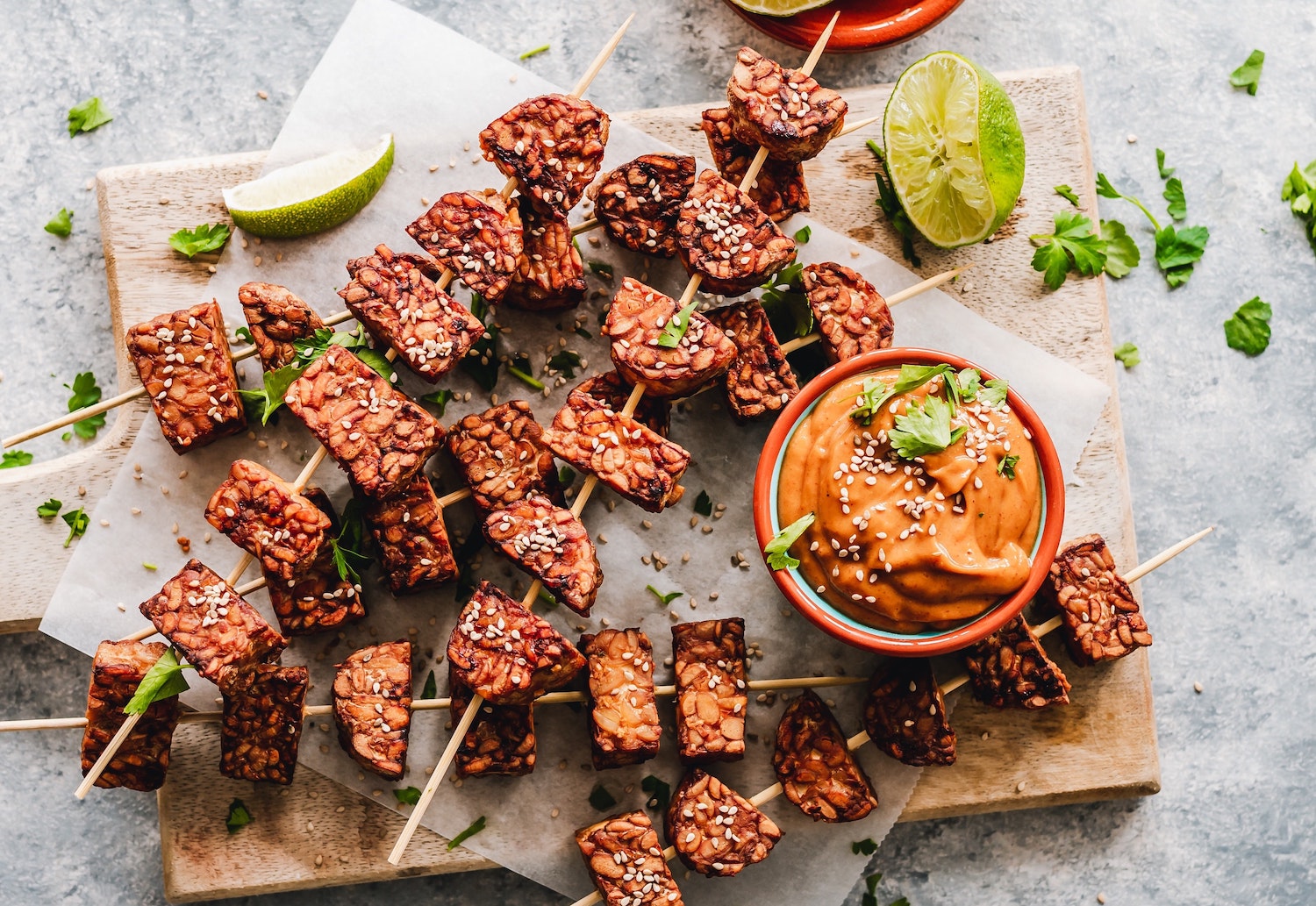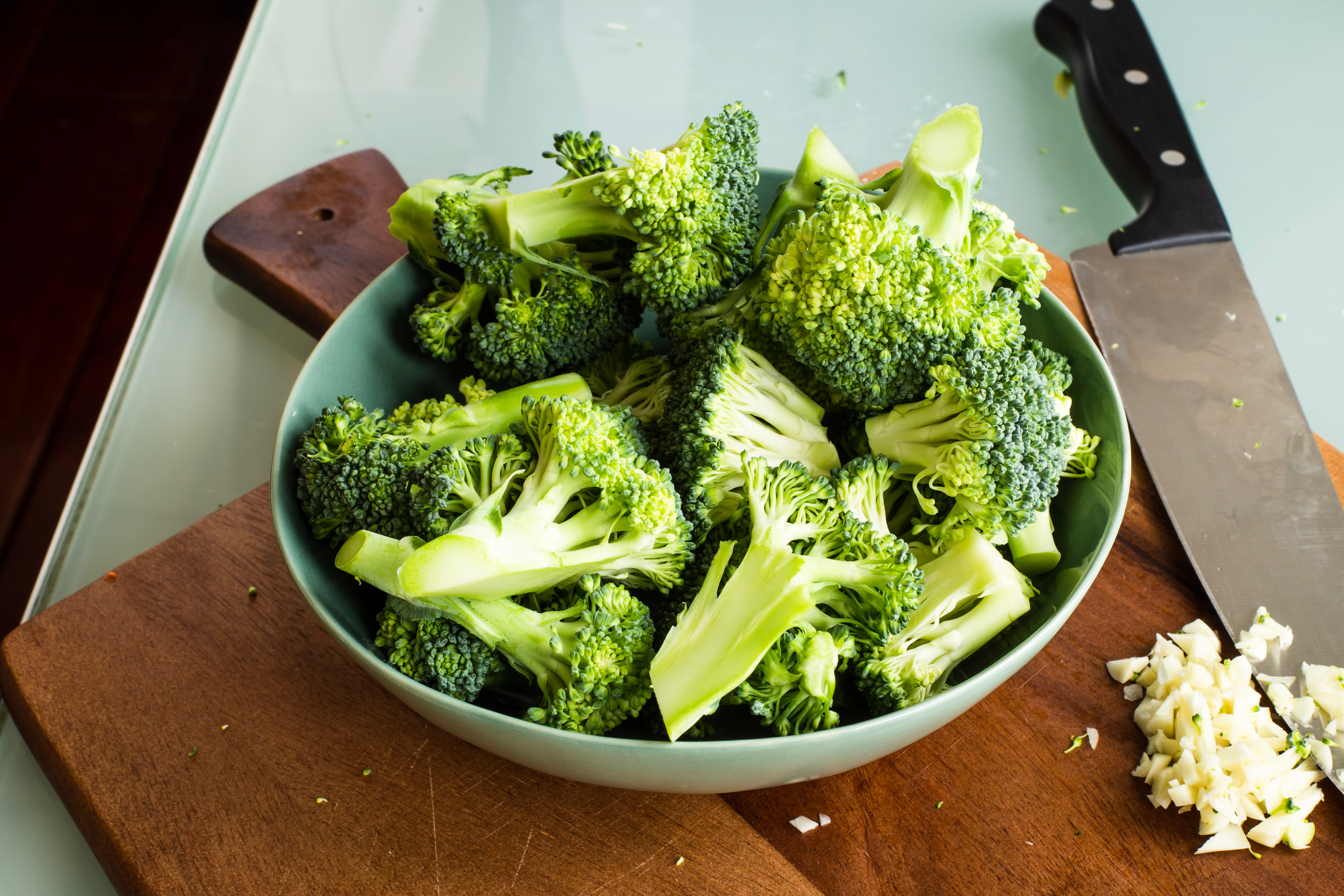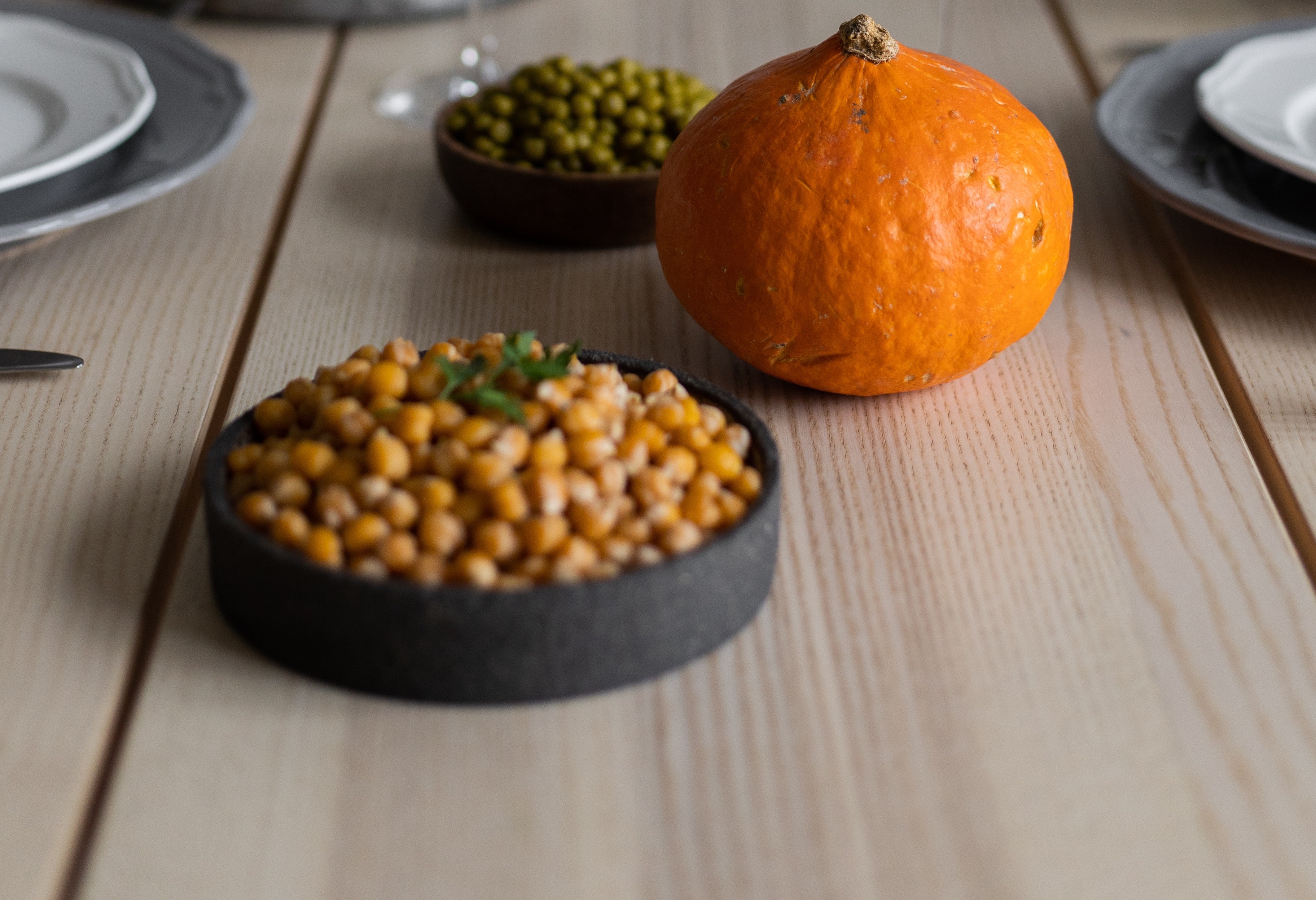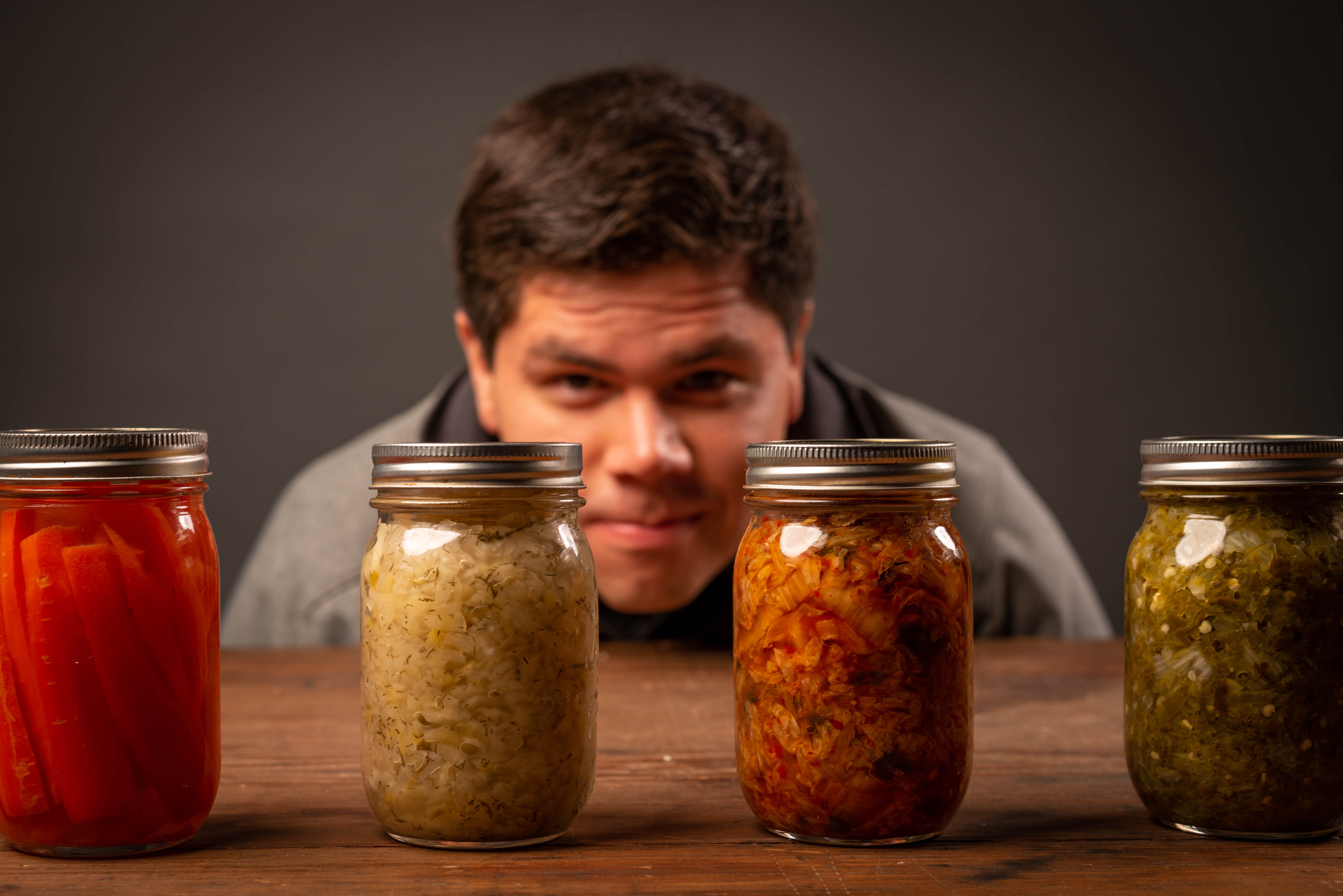Here’s How to Get Vitamin K2 on a Vegan Diet

When we think of all the vitamins we need, vitamin K usually isn't the first one that pops in our head. It serves an essential purpose, though.
That cut you just got? Vitamin K is going to be there, helping the blood clot. Thought milk was the only thing for strong bones? Think again, vitamin K regulates calcium deposits to ensure your bones are getting what they need.
Ahead, we explain how vegans get more vitamin K2 into their diet along with the history and health benefits. Keep scrolling to learn what vitamin K2 does for you.
History of vitamin K
It all started in the early 1930s when vitamin K was discovered as a nutrient that helps with blood clotting and coagulation. This is where vitamin K gets its name, as it was called the "Koagulations Vitamin."
Vitamin K is a fat-soluble vitamin, which means it's absorbed along with fats in the diet and may also get stored in fatty tissues.
With vitamin K, you're getting two forms – vitamin K1 and vitamin K2.
One is called phylloquinone (vitamin K1) and menaquinones (vitamin K2).
Vitamin K2 is divided up even further based on its side chains designated as MK-4 through MK-13, depending on its length. MK-4, MK-7, and MK-9 are the most studied side chains.
So, why is this vitamin important to discuss with vegan individuals? Let's dive into it.

Is vitamin K2 vegan?
No, vitamin K2 is not vegan, unfortunately. The majority of vitamin K2 is found in animal tissues and organs, especially in those that are grass-fed. The most significant sources are dairy products, organ meats, and your standard beef, pork, eggs, chicken, and fish.
Vitamin K1 is more vegan friendly, and half of vitamin K comes from your fruits and vegetables.
Foods such as:
- Dark leafy green vegetables
- Lettuce
- Broccoli
- Blueberries
- Grapes
There are many more foods that you can get vitamin K1 from compared to vitamin K2.
The amount of vitamin K1 that you get in a typical diet is tenfold what you would get of vitamin K2.
It's unlikely to be deficient in vitamin K1 as eating a Western diet is quickly going to help you meet the recommended intakes.
Vitamin K2, on the other hand, only accounts for about 25% of total vitamin K intake from food. Because of this, you are taking a supplement that is not a bad thing to consider!
The good news is that your body can convert some (but not enough) vitamin K1 to K2. The MK-4 side chain can be created thanks to bacteria in your body.

Here’s where you can get vitamin K2 vegan sources
Minimal plant-based foods have the capability of providing you vitamin K2. Some of these sources include:
1. Natto – Natto is a traditional Japanese food made from fermented soybeans. It has the highest amount of vitamin K2, specifically in the side chain MK-7.

2. Sauerkraut – Sauerkraut is fermented cabbage containing vitamin K2 from the various lactic acid bacterias used.

3. Kombucha – Kombucha is a fermented tea that has become popular in the past few years. This beverage can be easily found at grocery stores and in many different flavors.

4. Tempeh – Tempeh is similar to natto, but derived from Indonesia. This product is also fermented soybeans that are formed into a cake.

Although all these food items contain vitamin K2, it can be hard to gauge how much depending on how they are made. Therefore, relying solely on food options may not give you the amount you need.
Anja Grommons, a Registered Dietitian, foodie, and plant-based vegan diet pro (she's been vegan for years 😉) states that "While the human body produces endogenous K2 in the GI tract and ineffectively converts K1 to K2, a vitamin K2 supplement may still be a good idea for those who don't regularly consume fortified foods such as natto, miso, kimchi, and sauerkraut."
Grommons also gave some advice based on what she does as an individual who follows a vegan diet, mentioning that she "aims to consume fortified foods often for the many health-promoting properties they tote and opt for a K2-containing supplement regularly."
She follows up with, "As vitamin K is so important in blood clotting and coagulation, caution should be used when choosing a supplement. Always consult with your medical team before supplementing."
The recommended intake of vitamin K
Vitamin K is currently not split into two parts (K1 and K2) for the recommended intake. The National Institutes of Health has the daily recommendations listed as:
| Life Stage | Recommended Amount (in micrograms) |
| Birth to 6 month | 2 mcg |
| 7 to 12 months | 2.5 mcg |
| 1 - 3 years | 30 mcg |
| 4 - 8 years | 55 mcg |
| 9 - 13 years | 60 mcg |
| 14 - 18 years | 75 mcg |
| Adult men 19 years and older | 120 mcg |
| Adult women 19 years and older | 90 mcg |
| Pregnant or breastfeeding teens | 75 mcg |
| Pregnant or breastfeeding women | 90 mcg |
As of lately, researchers believe that vitamin K1 and K2 should have separate recommended intakes. The argument is that Recommended Daily Intake (RDI) among most countries is set from early vitamin K research over a century ago.
Research has also shown that vitamin K2 is more effective than K1. It can be retained in the body for a more extended period, has a broader distribution area across tissues, and has a higher metabolic action (AKA the way it is broken down or metabolized).
Choosing a vitamin K supplement
If you’re deciding to go the route of a vitamin K supplement, the FDA has some points about vitamin K that should be taken into consideration.
1. Think about your total diet – Vitamin K2 is a difficult vitamin to get through food sources as a vegan, and there is no known toxicity with high doses.
2. Check with your doctor – Vitamin K2 can interact with medication such as anticoagulants that help prevent blood clots and possibly other OTC medications.
3. Purchase from a reputable source – The FDA does not review supplements, and the manufacturers are responsible for making sure their product is safe. Purchasing from a trustworthy source will ensure you’re getting the best quality product.
With vitamin K2, the most common supplement choices are MK-4 and MK-7.
Reap the benefits of vitamin K
One 2020 study wanted to explore how vitamin K2 affected bone mineral density.
Without the help of calcium and vitamin D, the results found that postmenopausal women receiving 90 µg/day of vitamin K2 showed a significant decrease in bone loss compared to individuals receiving placebo and lower dosage.
The addition of calcium and vitamin D3 brought no additional effects when co-supplemented with vitamin K2.
Your heart health also can improve with quality vitamin K2 intake.
When bones start to weaken, calcium will make its way into your bloodstream and deposit itself in your vessels. Vitamin K2 comes to the rescue because it can activate the proteins matrix Gla protein (MGP) and osteocalcin. These two proteins take that calcium from your arteries and transfer them back to bones.
Your heart can get affected in this scenario because calcium can be deposited in soft tissues and blood vessels in your heart. That can increase your risk of cardiovascular disease by weakening the muscles and stiffening artery walls.
"Vitamin K2 may have superiority when pinned against its K1 counterpart. K2 has been found to possess health benefits that may reduce the risk of heart disease," says Grommons. "The vitamin is also known to work synergistically with vitamin D, another fat-soluble vitamin worth supplementing, especially for vegans."
Key takeaways to getting vitamin K2 on a vegan diet
It can be difficult to get vitamin K2 in via food as a vegan, and that's where supplements can come into play. Unless you're eating natto regularly, it's likely the best option to ensure you're getting your body's vitamin K2.
Another reminder to first touch base with your doctor to ensure that a vitamin K2 supplement won't interfere with any medication you may be taking.
If you get the go ahead, research before you pick the first supplement that comes up in your Google search. A quality manufacturer will give you a quality product. Be aware that vitamin K2 can sometimes come with other nutrients in a supplement (usually calcium and vitamin D).
The benefits seem to outweigh the readily available vitamin K1, with cardiac, bone health, and blood clotting all being positively affected.